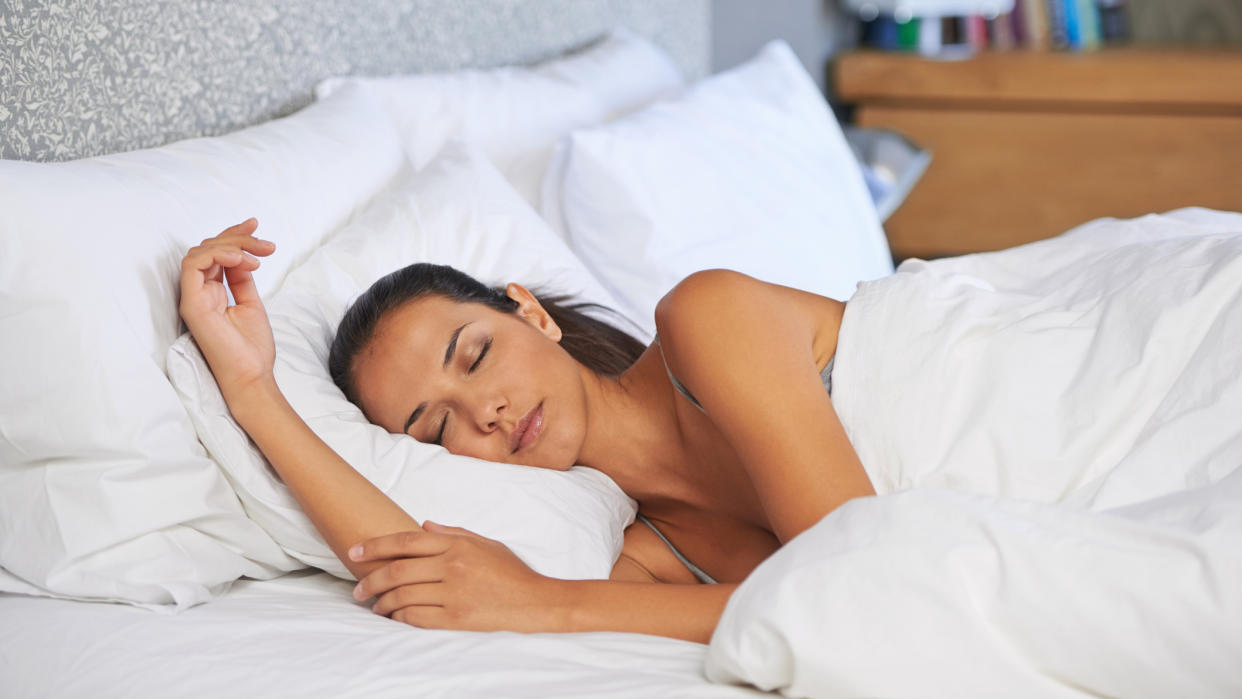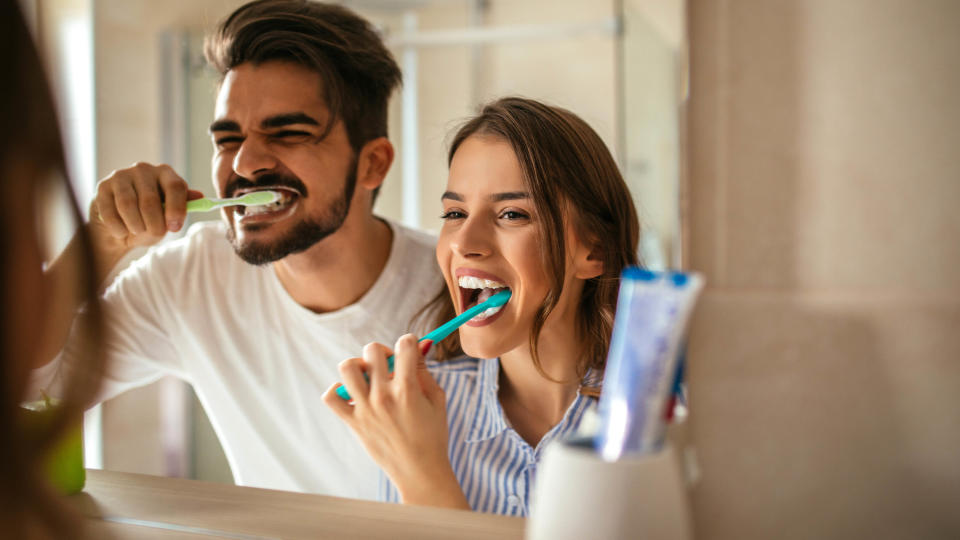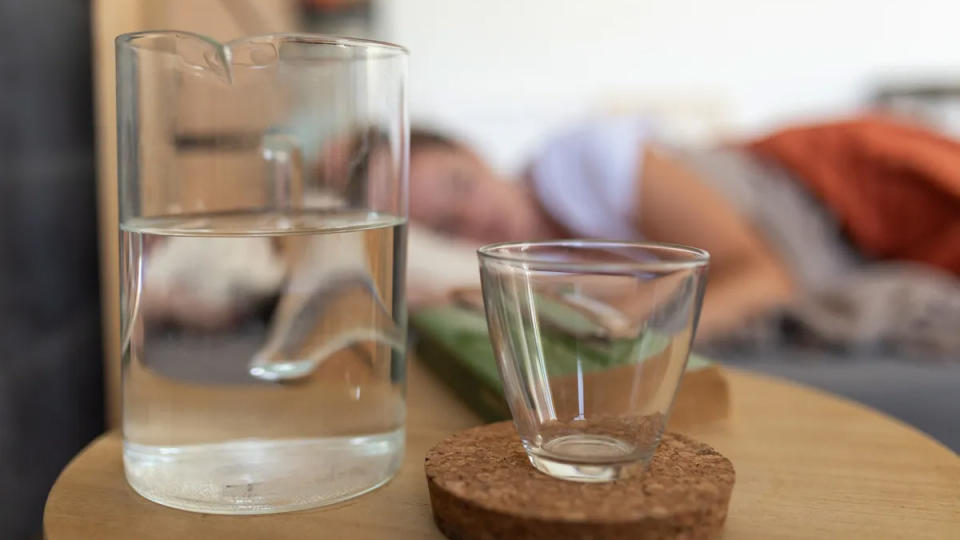5 things to avoid right before bed if you want to sleep through the night

For some of us, quality sleep can be elusive. Whether it’s drinking caffeine too late in the day, sleeping on the wrong mattress or mindlessly scrolling on our phones while in bed, there are plenty of unhelpful habits we know we should avoid if we want to stand a better chance of sleeping through the night.
Fine tuning our nighttime routines can make it easier to fall asleep fast, and sleep all night long too. While investing in the best mattress for your body will improve your sleep quality in the long term because you'll be cooler and more comfortable in bed, there are other easy changes you can make right now for better sleep tonight.
However, when creating a nighttime routine, there are certain habits you should avoid right before bed – that means ditching them within one hour before sleep. And some of these habits, like brushing your teeth before bed, might surprise you. So let’s take a closer look at the five things you should avoid right before bed if you want to boost your chances of sleeping through the night...
5 things to avoid right before bed to help you sleep through the night
1. Brushing your teeth
Experts warn that cleaning your teeth right before bed could disrupt your entire bedtime routine. Despite it being one of the last things most of us do before climbing into bed, sleep expert James Wilson advised us against cleaning your teeth right before bed when we spoke to him earlier this year.
"Before you start relaxing for the evening, make sure you have done everything you usually do before bed, like getting into your PJs and brushing your teeth,” Wilson explained. “That way, you can jump straight into bed when you feel sleepy, rather than doing anything that may wake you up."

What to do instead: The combination of standing under a stark bathroom light and the cold water can make it harder to fall asleep, so brush your teeth and get ready for bed before you start winding down for the night.
2. Thinking about tomorrow's tasks
If one of the last things you do before climbing into bed is to think about what tasks lay ahead of you the following day, stop right there. Thoughts of tomorrow can easily turn into a negative cycle of rumination, which is when we dwell on feelings that cause us distress and anxiety.
Naturally, this can easily hinder our ability to fall into a peaceful sleep. What’s more, sleep deprivation can exacerbate anxiety, which can then make it even harder to fall asleep.
What to do instead: Well before you start winding down for bed, write down your work stresses - or anything that you’re worrying about — in a separate room to the one you sleep in. Jotting down your worries in a sleep journal is a science-backed way to help reduce anxiety.
3. Watching anything too stimulating
If you want to fall asleep fast, you should avoid watching or reading anything too distressing or thought-provoking to prevent sleep-destroying overstimulation. "Watching the 10 O'Clock News, for example, may not be something that you should be doing before bed, because it's going to just make you think about and bring to mind lots of anxiety provoking things," Dr. Lindsay Browning advised us when we spoke to her about curating a bedtime routine for better sleep.
What to do instead: Whether it’s the evening news, a scary film or jumpy true-crime podcast, you should avoid consuming any media that causes your body’s stress hormones to spike, which are the natural enemy of sleep. Instead, save the hour in the run up to bedtime for relaxing activities, such as reading a book (just not Stephen King).

4. Drinking a glass of water
We know that caffeinated or alcoholic drinks can make it difficult to fall asleep, but even drinking a glass of water has the potential to derail your slumber. Drinking water within two hours before bed can lead to disturbed sleep because you'll simply need the toilet more. Frequent trips to the bathroom will not only disrupt your sleep, you may find it difficult to fall back to sleep at all.
What to do instead: Instead of waiting until right before bed to hydrate, drink plenty of water throughout the day so you're less thirsty at bedtime. Having a glass of water next to your bed is a great way to stave off a tickly cough or dry mouth, but you’ll be less inclined to drink the whole thing if you’re already hydrated.
5. Checking your phone 'one last time'
Checking your phone right before bed is ruining your sleep — and there are countless studies to prove it. Not only will the blue light emitted from your phone suppress your body's natural melatonin production (the sleepy hormone), it could lead to anxiety spikes, which will make it almost impossible for you to drift off.
"If you check your phone in that 30 minutes to an hour before bed, you're likely to be exposed to something new, that you're going to have to think about or deal with, whether that be a sort of a friendship thing or a work thing," explains Dr. Browning.
What to do instead: Avoid revenge bedtime procrastination and enforce a strict bedtime phone ban. In an ideal world your phone would be turned off or placed in another room an hour before bed, but activating sleep mode (which silences new message alerts and notifications) or turning on airplane mode can help.
